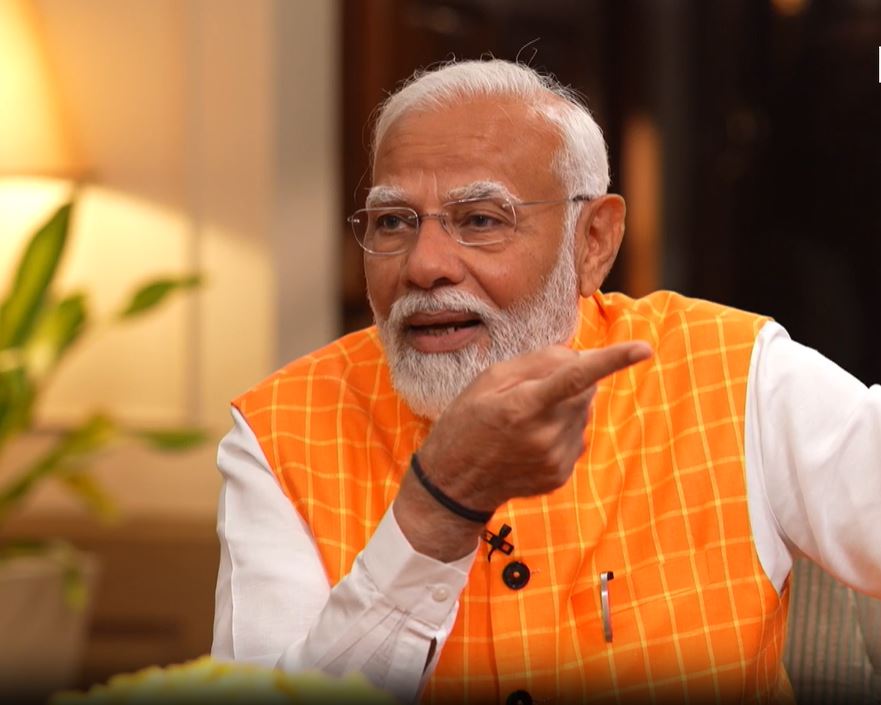Pitching for streamlining of policies at central, state and regional levels, Prime Minister Narendra Modi told NDTV that if he gets the cooperation from states then India will be a huge draw for foreign investors.
“Industry se log jab aate hain, woh sirf Bharat sarkar dekh kar aaye utne se baat banti nahi. State government and local self government, teeno main ek samanvay chahiye neetiyon main (When an industry comes to India, it does not just look at the central government. There should be uniformity in policies at both state and local self government level,” PM Modi said in an interview with NDTV”s Editor-in-Chief Sanjay Pugalia.
“There should be competitive cooperative federalism. Ab dheere dheere rajyo main woh spardha aa rahi hai. Woh apne niyam theek kar rahe hain, bureaucracy ko mobilise kar rahe hain. Agar mujhe rajyo ka sahyog mil gaya, tab toh main maanta hoon duniya main koi vyakti Bharat ke siva aur kahin nahi jaayega (There is competition among states. States are making changes in rules. Bureaucracy is being mobilised. If I get the support of the states, I believe no investor will be able to overlook India),” PM Modi told the channel.
The selling spree in Indian stock markets by foreign portfolio investors (FPIs) turned aggressive in May, partly attributable to a strong US dollar, sticky inflation particularly in the food segment, and poll outcome-related anxieties.
With over 10 days more to go in May, the latest data from National Securities Depository Limited (NSDL) showed that foreign investors sold Indian stocks worth ₹ 28,242 crore.
The Prime Minister, seeking re-election for a third term, was asked if the promised guarantees will compromise the fiscal discipline, said,”Mere case main kisi ko ashanka nahi hai. Jin logon ne mere Gujarat ke karyakaal ko dekha hai, main financial discipline ka bahut aagrahi raha hoon. Nahin toh koi desh chal nahi sakta hai. Fiscal discipline uska ek criteria hota hai (Nobody has any confusion regarding me. The people who have seen my work in Gujarat, they know I am a big believer in fiscal discipline. No nation can function without this discipline).”
The Prime Minister, 73, spotlighted how pre-budget articles said he will distribute ‘revris (freebies)’ and win polls, they were surprised to see that this is not a ‘chunaavi‘ budget (poll budget).
Blaming the Manmohan Singh-led United Progressive Alliance (UPA) government, PM Modi alleged “they did not pay attention” to fiscal deficit.
“The UPA government did not pay attention to it. It led to many side-effects. I believe (fiscal deficit) it should be religiously followed,” PM Modi stressed, adding his government has undertaken maximum and sustained economic reforms in the past 10 years.
The country is in the middle of a marathon six-week general election, which ends on June 1. Four phases are over. Three more remain.
The Prime Minister indicated that the financial markets will set new records after June 4 – the day votes will be counted.
India has one of the most liberal foreign direct investment (FDI) policies in the world and in fact more liberal than many Southeast Asian countries that the country is often compared with, Secretary in Department for Promotion of Industry and Internal Trade (DPIIT) Rajesh Kumar Singh told news agency PTI on Saturday.
The government has eased FDI norms in the space sector by allowing 100 per cent overseas investment in making components for satellites, as part of efforts to attract overseas players and private companies into the segment.
Post a comment FDI in India declined 13 per cent to USD 32.03 billion in April-December 2023, dragged down by lower infusion in computer hardware and software, telecom, auto, and pharma sectors, according to the government data.
